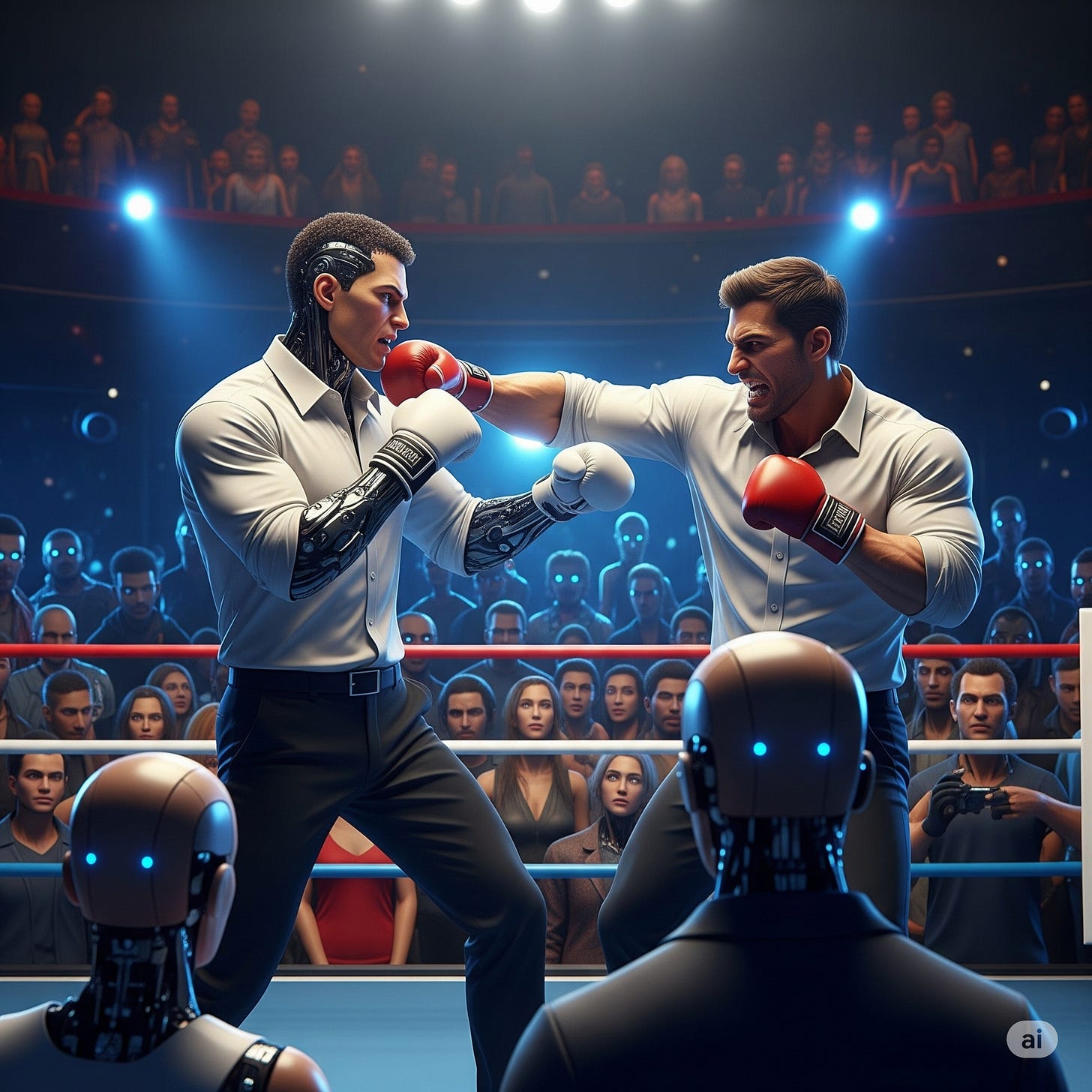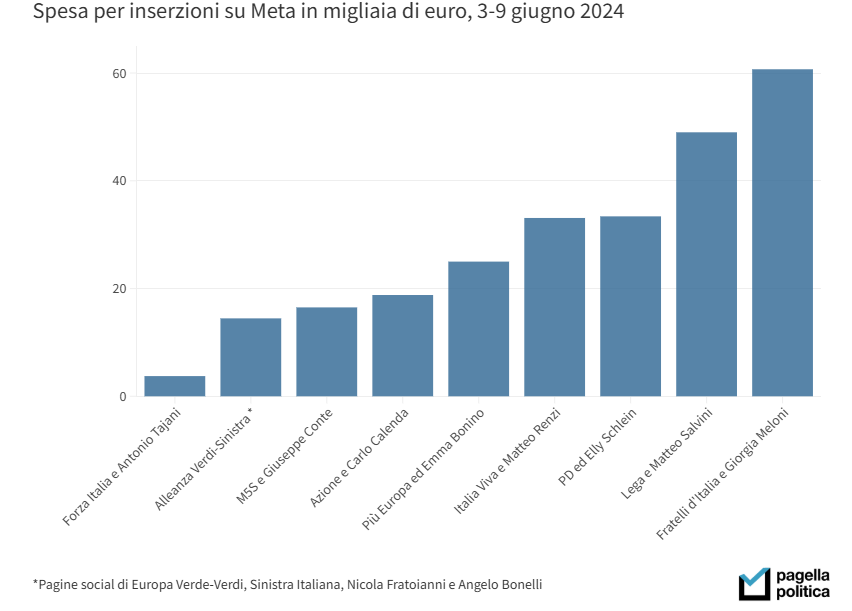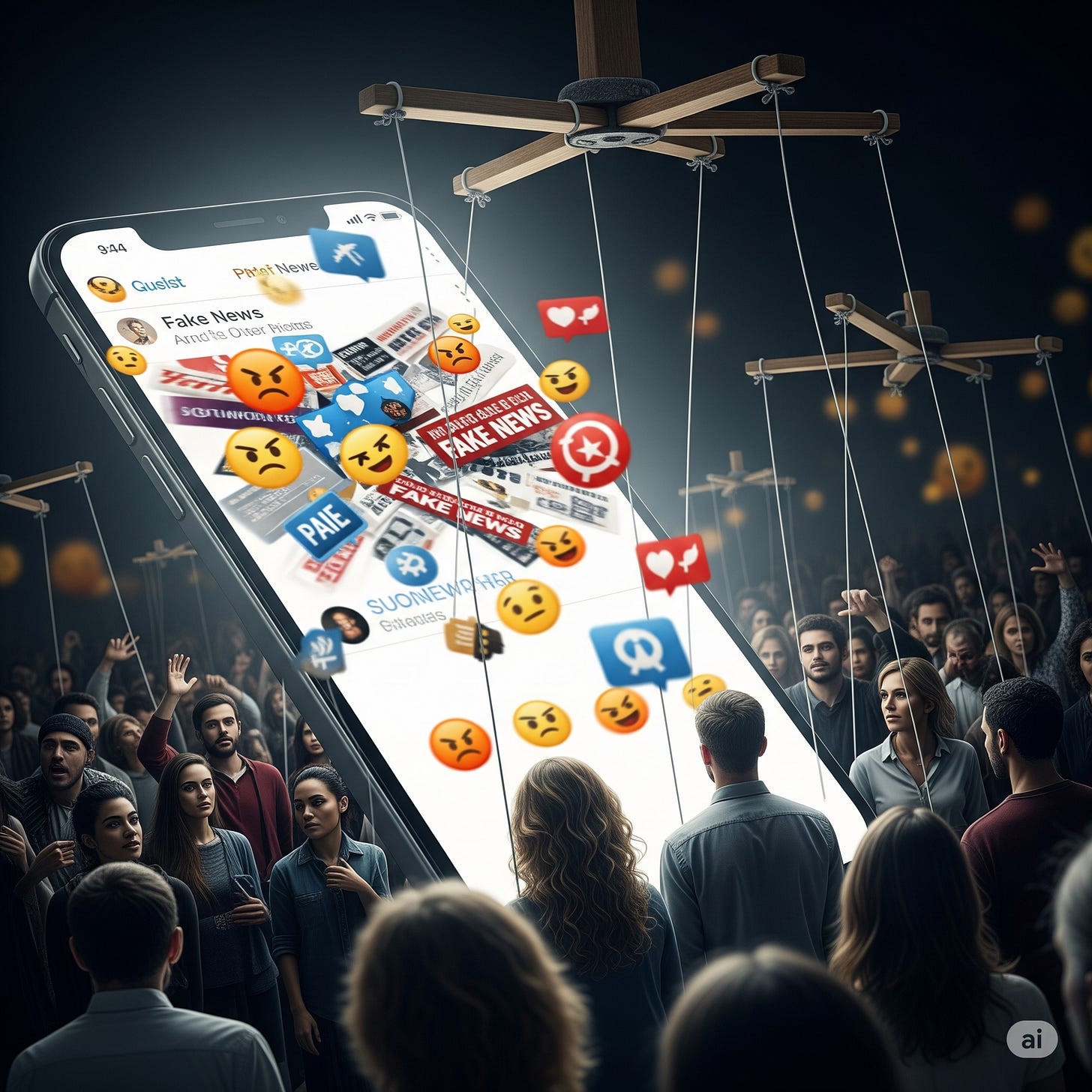Polite Social Networks Benefit No One
The continuous uproar is a massive business
Social networks are the public squares of hate, insults, and shame. It's a situation that nobody likes, yet it has been this way since the dawn of time. One might say that, deep down, we are fine with this climate, given that the bulk of information and debate comes from social media, even though we all complain about the confrontational atmosphere. I fear, however, that things are not so simple. Let me elaborate.
Let's start with some facts.
The majority of users get their information online. In 2023, the internet overtook television, as stated in the latest AGCOM (the Italian National Authority for Communications) report "Annual Observatory on the Information System" (source here).
Political parties want to reach citizens for electoral gain. How much do they spend on average on social media? A lot.
In the 2024 European elections, between May 11 and June 9, the Democratic Party spent €108,900 on sponsored ads on Meta platforms (Instagram and Facebook), while Fratelli d'Italia spent over €200,000 (from Pagella Politica here). The graph below shows the spending in the week before the elections alone.
This is not a recent trend; the same happened in 2022. The graph below shows how many paid ads the parties ran for the political elections between September 4 and 11, 2022 (the elections were on September 25, graph source: StartMag).
A sponsored post reaches more people; it's earned visibility.
Social networks tend to favor polarizing and noisy content. I have discussed this previously in this article, but let's go into detail about why this happens. I'll tell you what happened on my podcast a few weeks ago.
We published a clip on TikTok from our live session with Andrew Alberini (full video here), a PhD student searching for traces of life on Mars. A portion of the viewers do not believe we ever went to Mars (or the Moon) and wrote so in the comments. I counted about 16 skeptics out of a total of 34 people who commented. If I based my analysis solely on the comments, I would have to conclude that 47% of people are deniers. However, that post has received 18,500 total viewers to date, so the deniers who commented are only 0.08% of the total.
0.08% generating 47% of the comments—these are the proportions. The rest of the people simply don't comment, don't interact, don't feel like it. On a video about the planet Mars, it's not that important to state your opinion; I don't expect a chorus of "Wow," it's just normal.
The point is that the same proportions also apply to politics. Judging by social media coverage, the last Referendum should have easily reached the quorum, yet it did not. Why does this happen?
The link lies in activism: a few people who are very loud. This is related to how the human mind works; Nobel laureate Kahneman (the father of cognitive biases) dedicated a large chapter to the topic in "Thinking, Fast and Slow" (a highly recommended read).
Let's return to the main topic: polite social networks.
If a politician posts a normal, calm, quiet, and serene video, it will get a certain number of views, let's say 1,000. What kind of comments will be under the video? Some applause, some criticism, but an overall moderate climate.
If, instead, the politician gets angry at opponents, raises their voice, says something outrageous, and shouts, you can be sure it will get 1,000,000 views. The comments section will be full of activists from various factions: those who praise and write it, and rival supporters wishing for the gallows; clashes between people, comments, confusion. We all know how it ends.
All the negative interactions are pure gold for both sides: for the social network managers (the more people stay on the social network to comment, the more money the platform makes, I talked about it here) and for the politician's visibility (because the message still reaches more people).
This is why a polite social network benefits no one. The real victim is the democratic process because acting on gut instinct is never good for a healthy debate. Except that this debate, precisely, is no longer healthy and perhaps never will be again, because nobody wants it to be.
I want to conclude with a prediction for the year 2027, although I hope with all my heart that I am wrong. In two years, there will be political elections in Italy (they could happen sooner, but that's not the point). By now, technology is so advanced that it can create fake bots in comments, indistinguishable from human beings. If a decision is not made at the governmental level, the internet will be flooded with fake profiles repeatedly commenting for one side or the other. This is not a futurist prediction; it is already a reality:
During the last American election campaign, Elon Musk spread a fake audio of Kamala Harris generated with Artificial Intelligence (source here, New York Times);
In the summer of 2024, the United States discovered (and shut down) "bot farms" from Russia meant to influence the elections (source: U.S. Department of Justice, link here; also read the article from the Center for Strategic & International Studies here);
Another independent analysis from September 30, 2024, identified 686 fake accounts that produced about 130,000 posts in 6 months, also during the American election campaign period (read here).
Again, I truly hope I am wrong. I hope that in 2027, I will be made fun of for this prediction.
As things stand, we are heading towards the "Dead Internet Theory," the theory that the internet will become so full of false information and manipulated content that we will return to analog.
In all honesty, I don't know how much harm it could do us to stay away for a while from algorithms that profit from our attention.
If you found this analysis interesting, share it with a contact or leave a comment below.





